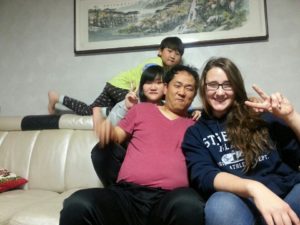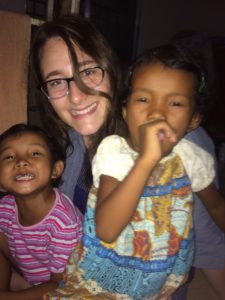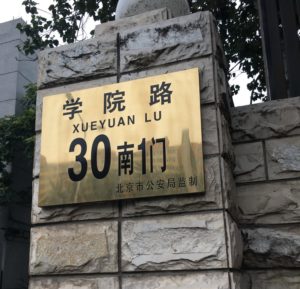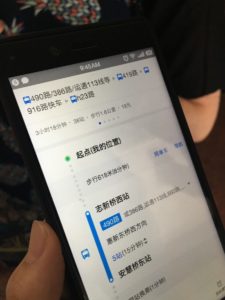Before coming to Beijing to study at Peking University, I had heard that using the internet as I had in the US would be a challenge. The Chinese government regulates which websites people can access, and sites such as Facebook, YouTube, and Netflix are all banned. When I arrived at my hotel and dorm room in Beijing, I quickly realized that the lack of access to certain websites was the least of my problems. When I got to my room, I realized that I had no internet access at all– I had no cell-phone service or wi-fi in my room. After using my broken Chinese to ask a hotel manager how to “use the internet,” the manager informed me that I would need to go to a cell-phone store to connect my phone and buy a router. At the time, I barely knew how to say “use the internet,” let alone “cell-phone plan,” “unlimited data,” “router,” or “I would like to purchase this router and cell-phone plan.”
Because I came to Beijing a week before my program started, I needed to go by myself to set up a phone plan and buy the router. The day after I arrived in Beijing, I walked from my hotel to an outlet mall to find the merchant stall that the hotel manager directed me to visit. I naively expected the store manager might speak some English so we could communicate; as soon as I approached the stall’s clerk, he told me in Chinese, “I’m sorry, I don’t speak any English.” For the next hour, I embarked on a haphazard and messy process of using the few vocabulary words I knew to ask to “use the internet” for the amount of time I would be in Beijing. I did not understand the majority of the clerk’s responses. However, I was ultimately able to piece together my limited vocabulary to get a phone plan with unlimited data and a router. Though it was obvious that my Chinese level was painfully low, the clerk was actually pleased and amused by my efforts and even decided to give me a discount on my phone plan. I left the shop not just with internet access, but also with a new WeChat friend who told me about his family and the best places to visit in Beijing.
The most significant part of this exchange was not my extensive knowledge of Chinese vocabulary and syntax. Rather, I was able to creatively piece together the bits of words, sentences, and phrases I had learned to make meaning and communicate with the person standing across from me. Learning Chinese gave me tools to communicate with the store clerk not just through words, but through laughing at my mistakes and overcoming my embarrassment to make a connection with another person. My language learning experiences have given me the tools to creatively and holistically communicate with others. Moreover, learning Chinese has given me the ability to approach unfamiliar situations, often when I do not know what is happening or how to say exactly what I want to, with confidence, persistence, and good humor.






